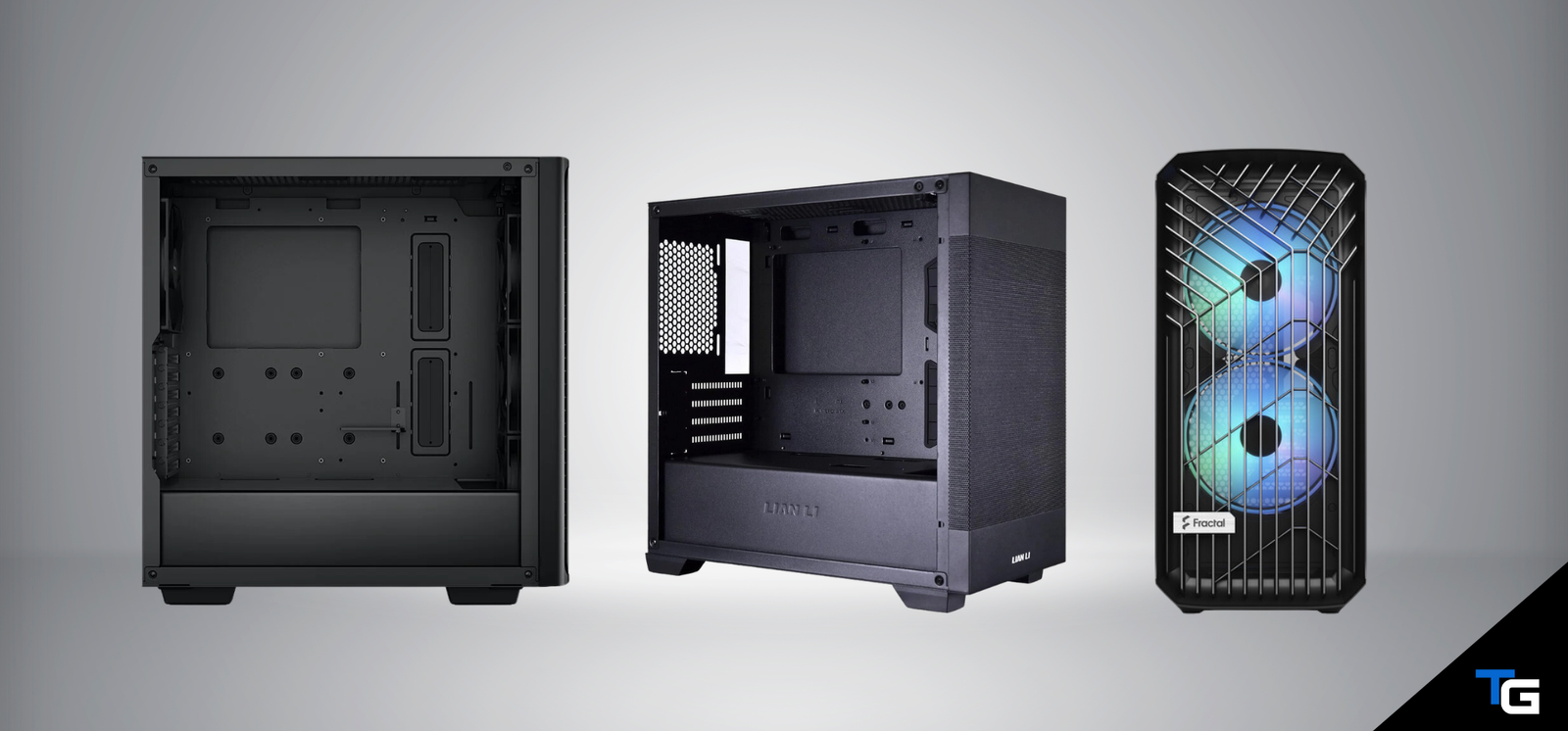Choosing the right PC case might seem like a straightforward decision, but it plays a crucial role in your computer’s functionality, cooling, and aesthetics. Here’s a comprehensive guide to help you navigate through the process of selecting the perfect PC case for your needs:
Consider Form Factor
PC cases come in various form factors: ATX, Micro-ATX, Mini-ITX, and more. Ensure your chosen case matches your motherboard’s form factor to ensure compatibility.
Size and Space
Evaluate the space available for the case. Larger cases offer more room for components and better airflow but might not fit in smaller spaces. Consider your desk or the area where the PC will be placed.
Airflow and Cooling
Good airflow is vital for keeping your components cool. Look for cases with ample fan mounts, mesh panels, or vents for proper ventilation. Consider if the case supports additional fans or liquid cooling solutions if needed.
Expansion and Compatibility
Check the case’s compatibility with your components. Ensure it has enough drive bays for hard drives or SSDs, sufficient clearance for your CPU cooler and GPU, and front panel ports that match your needs.
Build Quality and Material
Invest in a case made from durable materials like steel or aluminum. A well-built case can last through multiple builds and offer better protection for your components.
Aesthetics and Design
Choose a case that aligns with your aesthetic preferences. Some cases offer RGB lighting, tempered glass panels, or sleek minimalist designs. It’s important to love how your PC looks!
Noise Reduction Features
Consider cases with noise-dampening materials or designs that reduce fan noise. This can be particularly important if you prefer a quieter computing environment.
Cable Management
A case with ample cable management options, routing holes, and tie-down points can make assembling and maintaining your PC much easier while keeping things tidy and improving airflow.
Ports and Accessibility
Check the front panel for the availability and types of USB ports, audio jacks, and other ports you might need for convenience.
Budget Consideration
Set a budget range before exploring options. Cases come in a wide price range, so finding one that balances features, quality, and affordability is key.
Reviews and Recommendations
Read reviews from reliable sources or seek recommendations from PC-building communities. Real-world experiences can provide valuable insights into a case’s performance and usability.
Final Thought:
Choosing a PC case involves a balance between functionality, compatibility, aesthetics, and personal preferences. Understanding your needs, considering future upgrades, and ensuring adequate airflow and space for components are essential factors to keep in mind. Ultimately, the ideal case will not only house your components but also enhance the overall experience of building and using your PC.
